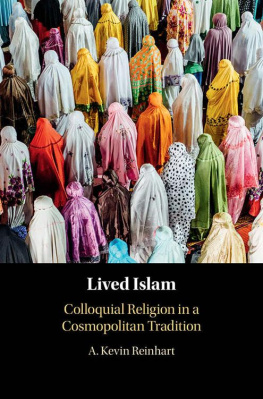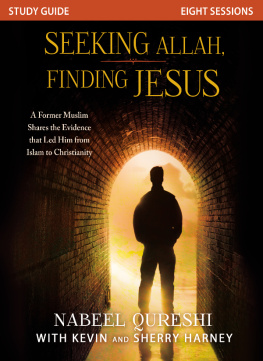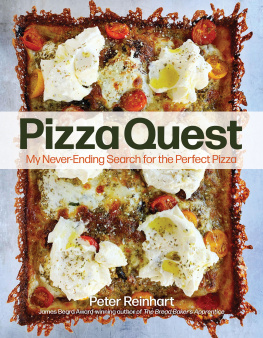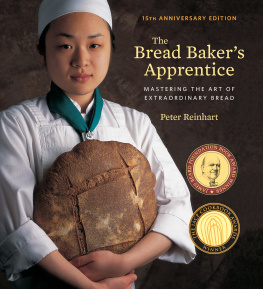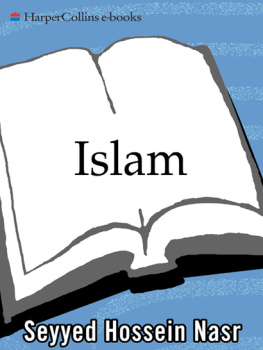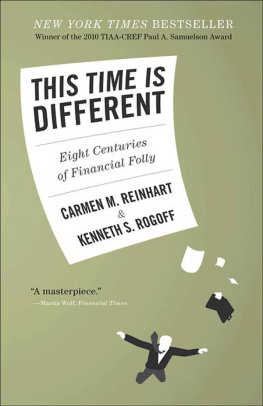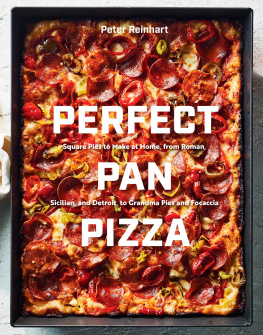A. Kevin Reinhart - Lived Islam
Here you can read online A. Kevin Reinhart - Lived Islam full text of the book (entire story) in english for free. Download pdf and epub, get meaning, cover and reviews about this ebook. year: 2020, publisher: Cambridge University Press, genre: Religion. Description of the work, (preface) as well as reviews are available. Best literature library LitArk.com created for fans of good reading and offers a wide selection of genres:
Romance novel
Science fiction
Adventure
Detective
Science
History
Home and family
Prose
Art
Politics
Computer
Non-fiction
Religion
Business
Children
Humor
Choose a favorite category and find really read worthwhile books. Enjoy immersion in the world of imagination, feel the emotions of the characters or learn something new for yourself, make an fascinating discovery.
- Book:Lived Islam
- Author:
- Publisher:Cambridge University Press
- Genre:
- Year:2020
- Rating:4 / 5
- Favourites:Add to favourites
- Your mark:
- 80
- 1
- 2
- 3
- 4
- 5
Lived Islam: summary, description and annotation
We offer to read an annotation, description, summary or preface (depends on what the author of the book "Lived Islam" wrote himself). If you haven't found the necessary information about the book — write in the comments, we will try to find it.
Lived Islam — read online for free the complete book (whole text) full work
Below is the text of the book, divided by pages. System saving the place of the last page read, allows you to conveniently read the book "Lived Islam" online for free, without having to search again every time where you left off. Put a bookmark, and you can go to the page where you finished reading at any time.
Font size:
Interval:
Bookmark:
Lived Islam
Does Islam make people violent? Does Islam make people peaceful? in this book, Kevin Reinhart demonstrates that such questions are misleading, because they assume that Islam is a monolithic essence and that Muslims are made the way they are by this monolith. He argues that Islam, like all religions, is complex and thus best understood through analogy with language: Islam has dialects, a set of features not shared with other versions of Islam. It also has cosmopolitan elites who prescribe how Islam ought to be, even though these experts, depending on where they practice the religion, unconsciously reflect their own local dialects. Reinhart defines the distinctive features of Islam and investigates how modernity has created new conditions for the religion. Analyzing the similarities and differences between modern and premodern Islam, he clarifies the new and old in the religion as it is lived in the contemporary world.
A. Kevin Reinhart is Associate Professor of Religion at Dartmouth College. He is the author of Before Revelation: The Boundaries of Muslim Moral Knowledge and many articles on aspects of Islamic civilization.
Lived Islam
Colloquial Religion in a Cosmopolitan Tradition
A. Kevin Reinhart
Dartmouth College


University Printing House, Cambridge CB2 8BS, United Kingdom
One Liberty Plaza, 20th Floor, New York, NY 10006, USA
477 Williamstown Road, Port Melbourne, VIC 3207, Australia
314321, 3rd Floor, Plot 3, Splendor Forum, Jasola District Centre, New Delhi 110025, India
79 Anson Road, #0604/06, Singapore 079906
Cambridge University Press is part of the University of Cambridge.
It furthers the Universitys mission by disseminating knowledge in the pursuit of education, learning, and research at the highest international levels of excellence.
www.cambridge.org
Information on this title: www.cambridge.org/9781108483278
DOI : 10.1017/9781108629263
Cambridge University Press 2020
This publication is in copyright. Subject to statutory exception and to the provisions of relevant collective licensing agreements, no reproduction of any part may take place without the written permission of Cambridge University Press.
First published 2020
Printed in the United Kingdom by TJ International Ltd, Padstow Cornwall
A catalogue record for this publication is available from the British Library.
Library of Congress Cataloging-in-Publication Data
Names: Reinhart, A. Kevin, 1952 author.
Title: Lived Islam : colloquial religion in a cosmopolitan tradition / Dr A. Kevin Reinhart.
Description: 1. | New York : Cambridge University Press, 2019. | Includes bibliographical references and index.
Identifiers: LCCN 2019030728 (print) | LCCN 2019030729 (ebook) | ISBN 9781108483278 (hardback) | ISBN 9781108629263 (epub)
Subjects: LCSH : Islam 21st century. | Islam Essence, genius, nature.
Classification: LCC BP 163 . R 448 2019 (print) | LCC BP 163 (ebook) | DDC 297.09/051dc23
LC record available at https://lccn.loc.gov/2019030728
LC ebook record available at https://lccn.loc.gov/2019030729
ISBN 978-1-108-48327-8 Hardback
ISBN 978-1-108-70400-7 Paperback
Cambridge University Press has no responsibility for the persistence or accuracy of URLs for external or third-party internet websites referred to in this publication and does not guarantee that any content on such websites is, or will remain, accurate or appropriate.
For
Arthur S. Reinhart
Hilma H. R. Reinhart
John Alden Williams
Wilfred Cantwell Smith
Difference among my community is a mercy
Attributed to the Prophet Muammad
This book is an essay in the literal sense of the word. It also tries, in a modest way, to be a manifesto. Lived Islam is an attempt more carefully to describe what we ought to mean when we use the term Islam. While this book claims to describe the situation of Islam as a whole, it subverts itself by pointing to the immeasurable variety of Islam in the world. The book is primarily intended to call attention to the dirty little secret of current Islamic studies namely that, to the extent we speak of or teach about Islam as a whole, we have been party to a crypto-theological enterprise, and that in fact Islam as a phenomenon is much richer than can ever be embraced in our Introduction to Islam courses. It is also a mild and fraternal critique of the work of those who undertake to describe Islam as a lived phenomenon without coming to terms with the full complexity of what they undertake to study. And finally, it is an attempt to provide a model, a heuristic, for talking about the intricate variations of Islam (and perhaps other religions) in a theoretical way. Mine is a model derived from sociolinguistics; other models may be proposed. Perhaps the most valuable works are those that, in the process of being critiqued, bring clarity to a field. This work is above all an invitation to critique.
It is a pleasant duty to thank many friends and colleagues with whose help, in various ways over the many years, this book has, in fits and starts, been written. These ideas have been presented in lecture form at the University of Pennsylvania, Smith College, the University of California at San Diego, the Alliance of Civilizations Institute of Fatih Sultan Mehmet University, and at the Religion Department Colloquium at Dartmouth College, and for this I thank Everett Rowson, Keith Lewinstein, Hasan Kayal, and their faculty colleagues, Bruce Lawrence and miriam cooke, as well as my own colleagues, particularly those in the Religion Department here at Dartmouth College.
Tracey Maher meticulously copy edited a version of the manuscript. Her eagle eye caught many inconsistencies and failures of clarity. Meredith Wilson, somewhat later, was equally astute and meticulous. I am very grateful for their help. Subsequently the book was read and insightfully commented upon by Maimuna Huq. Linda George and Megan Clark copy edited with discernment and taste. Bruce Lawrence and miriam cooke read chapters of the work, and provided encouragement and helpful critical insight. Patsy Carter, former doyenne of Dartmouths ILL department, was practically a collaborator on the early stages of this book so many interlibrary loans did she provide for me. She was the spirit of Baker Library and I miss her help and good nature. Bill Fontaine, also of Baker Library, suffered under a barrage of inquiries about books in our collection, books we do not have in our collection, the location of books mis-shelved in our collection, and so on. His patience was a lesson to me.
Students at Dartmouth, particularly in the seminar Local Varieties of Islam, helped to stimulate my thinking on these matters. Thanks to Elise Welford, Barbara Seniawski, Clare Choo, and the late Cheryl Pinkerton a promising and much-lamented student of Middle East studies from that seminar. Barbara Seniawski later wrote an excellent senior thesis provoked by this model. I have profited from that, and from my discussions with her over the years. Dale Eickelman organized a conference where I first tried to think through (not very clearly) these issues; Clifford Geertz was a charitable and stimulating commentator on that rather murky paper. Ellis Goldberg brought his deep knowledge of contemporary Arab Islam to bear on a very early draft of this argument, and offered important critiques and encouragement. David McMurry was very important in thinking about the issues in the chapter on modern Islam; I had to revise my argument substantially in response to his helpful criticism. Brian Didier was a stimulating colleague and kindly read a chapter when I was in the slough of despond. Above all, James Laine has encouraged this project, suggesting that it has merit not just for Islamic studies but for the study of Religion. His enthusiasm has kept me going when my focus has flagged.
Font size:
Interval:
Bookmark:
Similar books «Lived Islam»
Look at similar books to Lived Islam. We have selected literature similar in name and meaning in the hope of providing readers with more options to find new, interesting, not yet read works.
Discussion, reviews of the book Lived Islam and just readers' own opinions. Leave your comments, write what you think about the work, its meaning or the main characters. Specify what exactly you liked and what you didn't like, and why you think so.

